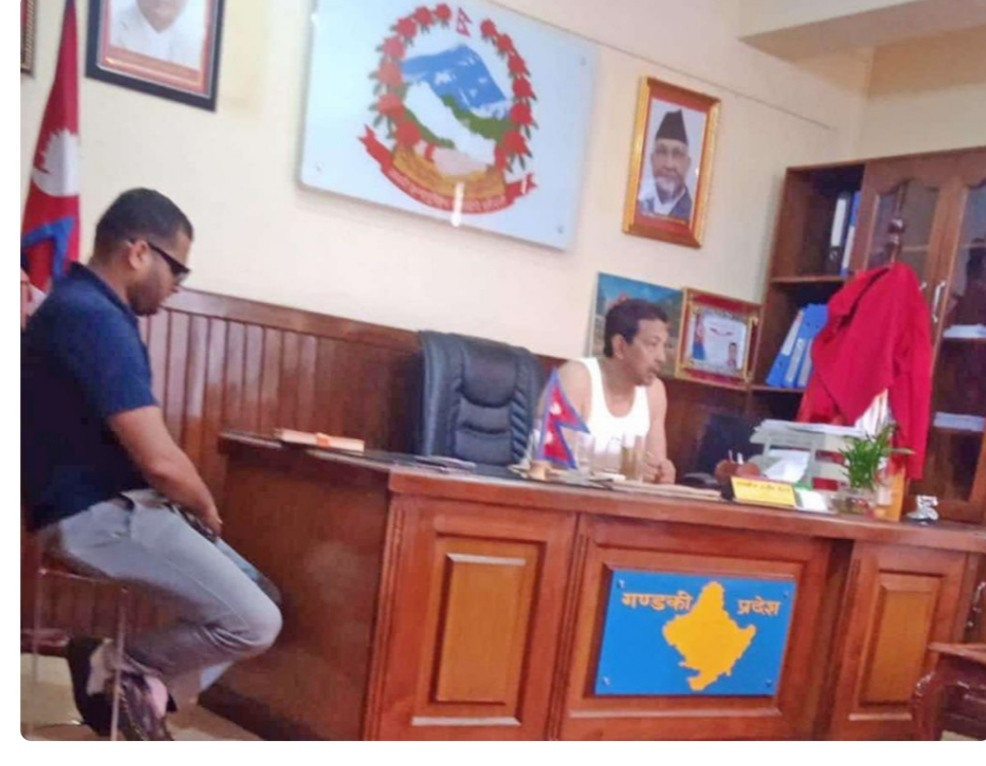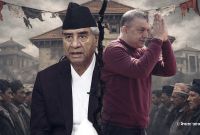Dipak Manange's Clean White Vest: What's the Harm? At Least He Wasn't Naked

Rajiv Gurung, known as Dipak Manange, the Minister for Physical Infrastructure Development and Transport Management of Gandaki Province, has stirred social media with a photo of him wearing a white vest in his office. While the image has garnered mixed reactions, it also highlights his unique sense of fashion and personal choice.
Clothing choices are deeply personal. People wear clothes for various reasons, including protection from weather, physical safety, hygiene, cultural norms, self-expression, and comfort.
Benefits of a White Vest in Summer
The temperature in Pokhara has been steadily rising. During the summer, wearing white clothing is both practical and comfortable. White fabric reflects sunlight, helping to keep the body cool. In a vibrant city like Pokhara, where residents and tourists alike sport short and stylish outfits, the sight of the minister in a vest can be seen as aligning with the local fashion trends.
Pokhara's Temperature and Fashion
Pokhara's temperature has been continuously climbing, often exceeding 30 degrees Celsius during the summer months. In such conditions, white clothing is considered beneficial as it helps reduce heat absorption and keeps the body cool.
Tourist Fashion and Pokhara's Culture
Pokhara is a glamorous city attracting millions of tourists each year. Local youths and visitors often wear shorts and fashionable clothing to beat the heat. For instance, tourists strolling along the shores of Phewa Lake are commonly seen in shorts and t-shirts, with some even partially dressed.
The Minister's Fashion and Social Norms
While it is generally expected that a person holding a high office should wear formal attire, the minister's choice to wear a vest can be seen as a matter of personal preference. From a positive perspective, it indicates his priority for comfort during the hot weather.
Minister Gurung's decision to wear a vest in his office and during meetings showcases his comfort and practicality. At the very least, he chose to cover himself with a clean white vest, maintaining a level of modesty.
 Clothing choices are personal and should be viewed in the context of social and cultural norms. Considering the rising temperatures in Pokhara, the local fashion trends, and the behavior of tourists, Minister Gurung's attire can be supported from a standpoint of personal comfort and practicality. This perspective encourages us to view his choice not just with criticism but with a positive outlook as well.
Clothing choices are personal and should be viewed in the context of social and cultural norms. Considering the rising temperatures in Pokhara, the local fashion trends, and the behavior of tourists, Minister Gurung's attire can be supported from a standpoint of personal comfort and practicality. This perspective encourages us to view his choice not just with criticism but with a positive outlook as well.




![From Kathmandu to the World: How Excel Students Are Winning Big [Admission Open]](https://nepalaaja.com/img/70194/medium/excel-college-info-eng-nep-2342.jpg)
